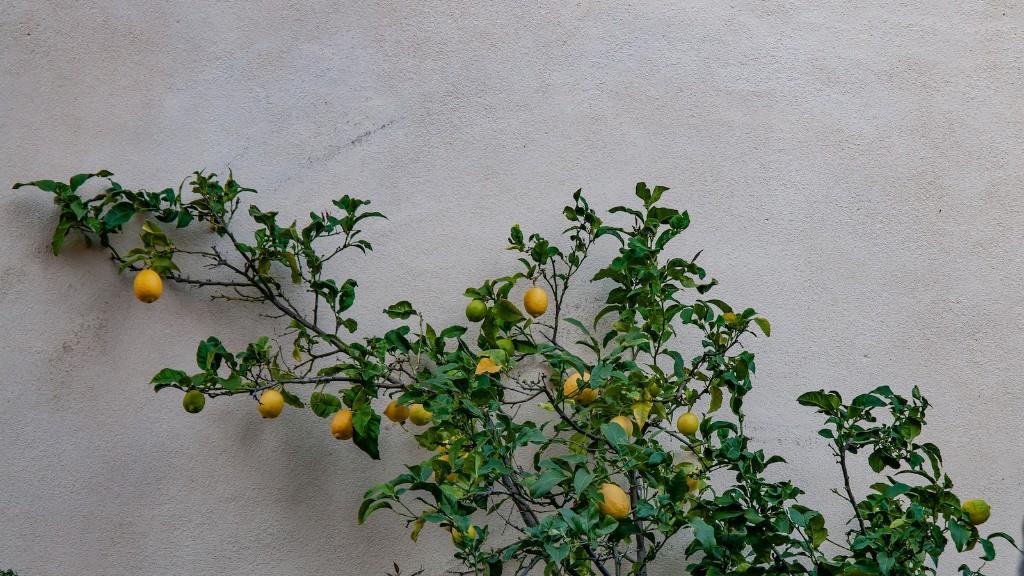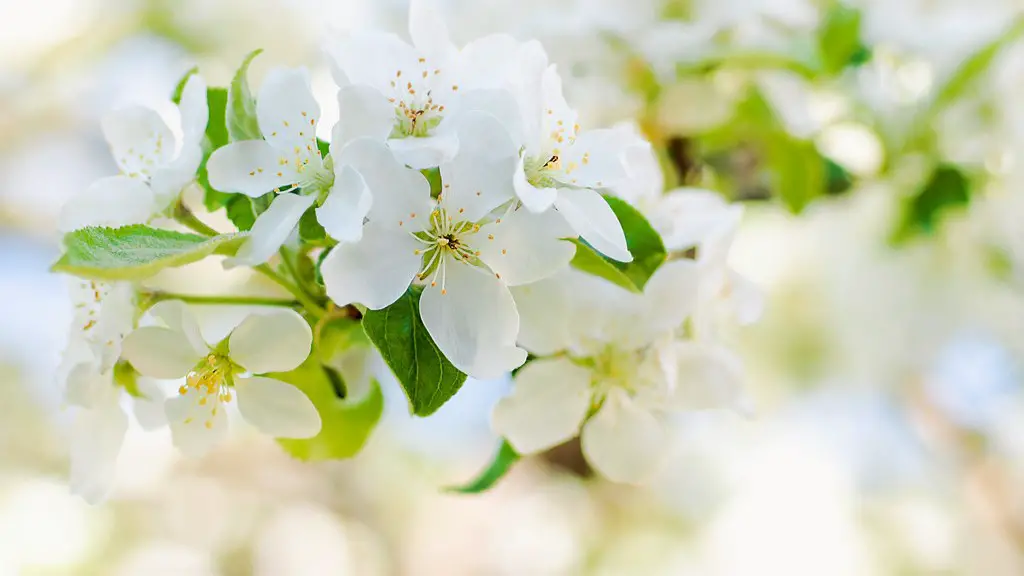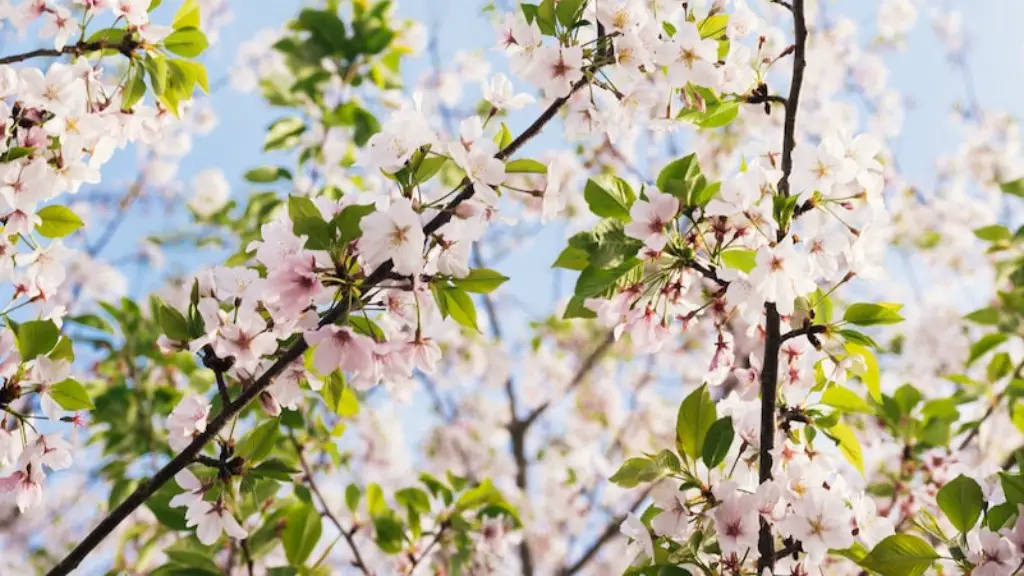Most gardeners who plant a Meyer Lemon Tree in their backyard are eager to know how long before the tree produces fruit. While it isn’t possible to answer this question with a specific timeline, there are some things that are likely to influence how quickly your tree will yield fruit.
Meyer Lemon Trees are typically grown from a grafted tree, meaning that the rootstock of the tree is the same as a standard citrus tree, but the top of the tree is from a Meyer Lemon variety. Since these trees are not grown from seed, the timing of when a tree will produce fruit is greatly reduced, typically allowing for fruit to appear as early as two to two and a half years.
Care and maintenance play a role in the speed of maturity for a Meyer Lemon Tree. On average, these trees need full sunlight for at least six hours each day and need to be properly watered. It is important to pay attention to the soil, as it is essential for the tree to receive the proper nutrients and minerals it needs in order to grow and produce fruit.
There are some cases where the tree may take longer than the average time to produce fruit. This is usually due to some sort of environmental or other factor that has caused the tree’s growth to be stunted. These cases require a bit more attention and care to the tree in order to ensure that the tree continues to grow properly and can produce fruit.
Overall, if you have a Meyer Lemon Tree in your backyard, it is likely that it will begin producing fruit in two to two and a half years as long as it is given the proper attention and care.
Fertilizing for Fruit production
In order to encourage your Meyer lemon tree to yield more fruit, its important to fertilize the tree regularly. It is generally recommended that Meyer lemon trees be fertilized once a month from late spring through early fall. Fertilization should be based upon the directions on the fertilizer package.
Generally, a mixture of magnesium, nitrogen, and phosphorus is the optimal fertilizer for Meyer lemon trees. It is also important to note that these trees also need additional calcium, specifically in the form of limestone, to help reduce the risk of blossom end rot.
It is important to take into account the pH balance of the soil when fertilizing a Meyer lemon tree. If the soil is too acidic, it can reduce the effectiveness of the fertilizer, making it more difficult for the tree to take up the necessary nutrients from the soil. It is important to check the pH of the soil before fertilizing, and adjust the soil accordingly.
In addition to fertilizing, pruning is also an important part of the tree’s maintenance. Pruning can help to create a full and well-shaped tree that can lead to more flowers and ultimately, more fruit. Pruning should be limited to removing any dead or diseased branches, as well as any branches growing outside of the desired shape.
Pollination
Meyer lemon trees are self-pollinating, meaning that the trees do not require another tree or external forces to pollinate. This means that a single tree can yield fruit, although multiple trees will typically produce a larger amount of fruit.
Even though Meyer lemon trees are self-pollinating, there are some things that can be done to help the trees produce more fruit. Supplying additional sources of pollinators such as bees will help to ensure more flowers are pollinated, leading to more fruit being produced. Encouraging natural pollinators such as bees to visit your trees is an easy and safe way to help increase production.
In addition to increasing the number of pollinators, ensuring that your Meyer lemon trees are in optimal health is important for increasing the likelihood of larger crops. Ensuring they are properly watered and fertilized is paramount, as well as maintaining a healthy environment without any risk of pests or diseases.
Although it takes a bit of effort and maintenance, careful attention to your Meyer lemon trees can help to ensure that a large crop of fruit is produced each year.
Disease Prevention
Preventing diseases and pests is essential for a Meyer lemon tree to produce fruit, and this can be accomplished through a variety of means. In areas where there is a risk of frost, protection should be considered for the tree, such as covering the tree with a blanket or frost cloth during cold nights.
Inspecting the tree for any signs of pests is also important for preventing diseases. Common pests for Meyer lemon trees include citrus scale, caterpillars, and aphids, as well as more uncommon pests such as spider mites. If any of these pests are found, it is important to address the problem immediately with the appropriate pest control methods.
It is also important to make sure that any diseased or dead branches are removed from the tree. These branches can lead to infections in other parts of the tree, and can spread quickly, reducing the chances of a successful fruit crop.
Lastly, it is important to make sure that the tree is in an environment that is well-draining. Poor drainage can lead to root rot, which is an especially dangerous disease that can be difficult to recover from.
Maintaining Optimal Health
The key to maintaining a Meyer lemon tree that produces fruit year after year is to make sure it is kept in good health. This includes providing the tree with the necessary sunlight, water and nutrients, as well as ensuring the environment is free from pests and diseases.
It is important to note that fruit production will be reduced during the winter months, and trees should be protected from any severe cold during this time. This can be accomplished by providing frost protection, either with frost blankets or frost cloths, or by wrapping the tree with shredded newspaper or cardboard.
It is also important to check the soil regularly and adjust the pH as needed. Cold temperatures tend to be more acidic, which can affect the pH of the soil and make it more difficult for the tree to take up the necessary nutrients. By making sure the soil is at the optimal pH level, the tree will have a better chance of producing a healthy crop of fruit.
Providing proper care and attention to your Meyer Lemon Tree will ensure that it produces a large crop of fruit year after year. Regular pruning, fertilizing, and pest and disease prevention will go a long way towards helping your tree produce a larger amount of fruit.




